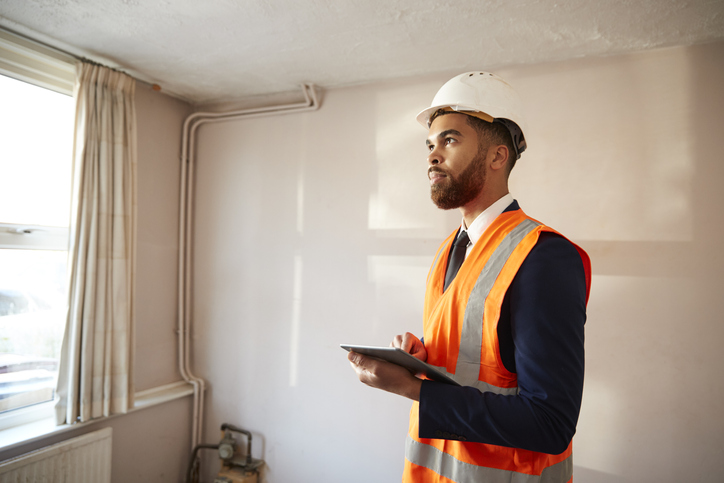Buying a Property: What Survey do I Need?
A look at the various options when it comes to building surveys.
When buying a property, most people are unaware of the principle of “caveat emptor” or “buyer beware”. We would like to think that the seller of the property will disclose everything to the buyer that they could possibly want know about the property, but in reality it is unlikely that the seller will be able to do so, particularly in matters which require an expert opinion, such as the structure of a building.
In the interests of fairness, the law does not require the seller to inform a buyer about any defects or problem and therefore the buyer must rely on their own searches and enquiries.
Therefore, it is for this reason that we encourage buyers to consider having a survey of the property carried out before exchanging contracts, so that they receive expert advice on the property and any issues are raised prior to exchange. However, it is not always obvious which survey is best and this may depend on a buyer’s needs and suitability. We have discussed below the three main types of survey that buyers can obtain as part of this process:-
- Mortgage valuation survey
For anyone buying with the aid of a mortgage, it is likely that the lender will require a survey of the property to ensure that the value of the property is sufficiently high to cover the borrowing. The surveyor performing such a valuation will be looking for specific things that could affect the value of a property. Common examples include parking arrangements, significant defects in structure (including building without planning permission), properties in a high risk flood area, or properties that are particularly run down. Any serious issues could mean that the lender will decrease a mortgage advance or refuse to lend at all.
It is worth considering that although a buyer may have to pay for this survey, the report may not actually be shown to anyone but the lender and, in addition, it is important to note that the surveyor will not conduct a full survey of the property; the inspection is very limited in its scope, and if the lender’s surveyor has overlooked any defect there is unlikely to be any recourse for the purchaser.
2.Homebuyer report with survey and valuation
This is a survey carried out under a scheme implemented by the Royal Institute of Chartered Surveyors and is recommended for those buying a property as a home. The report will give:
- a current valuation of the property,
- some background of the property,
- an assessment of drainage, damp-proofing and insulation in the building,
- an assessment on the condition of any timber
- results of damp testing walls,
- details of any urgent problems which should be actioned before exchange of contracts, and
- details of major faults on the building which could affect the value.
A Homebuyer report usually proves much more useful to a buyer than a mortgage valuation report as it goes into much more detail about the condition of the property. The buyer can then make a decision about whether to make further enquiries with the seller or require the seller to take action before exchange. This can have the advantage of burdening a seller with the cost of any remedial action for urgent matters.
The aim is to provide a concise and readable account of the general condition of the property to assist the purchaser by increasing their knowledge of the property. It is cheaper than a full survey and is a useful way of highlighting any serious problems at the property.
3.Full structural survey
This is the most comprehensive type of survey carried out on the whole property. The surveyor will look at the entire structure of the property, including the materials used, the condition of the roof, the foundations and the walls. This survey goes further than the Homebuyer’s report because the surveyor will actively look for potential problems, for example:
- The condition of supporting walls
- Whether works have been carried out in accordance with planning permission
- If there are hazardous materials such as asbestos present
- Evidence of woodworm or other insect infestations
- Plumbing and electrical system defects
Some buyers will choose not to get a full structural survey for a residential property, as it can be expensive and is not necessary based on the information available from other sources. It is advisable for a buyer to get a full structural survey where the property is particularly old or dilapidated, it is an unusual construction e.g. has a thatched roof, they intend to carry out major works or the purchase price is high.
It is also important to note that a full survey can take several hours to complete although, even with the seller’s co-operation, there may be parts of the property which are hidden, inaccessible or unexposed. The surveyor ought to draw your attention to what he has not been able to investigate.
It is also worth noting that the drains, the central heating system, the wiring and gas and electrical installations are normally outside the scope of a survey and you may need to have them inspected separately.
Here at Field Seymour Parkes we would be happy to discuss with you the results of your survey and what your options are regarding the property you are purchasing. Should you need any assistance with the purchase of your property, please contact our residential conveyancing team on [email protected]

